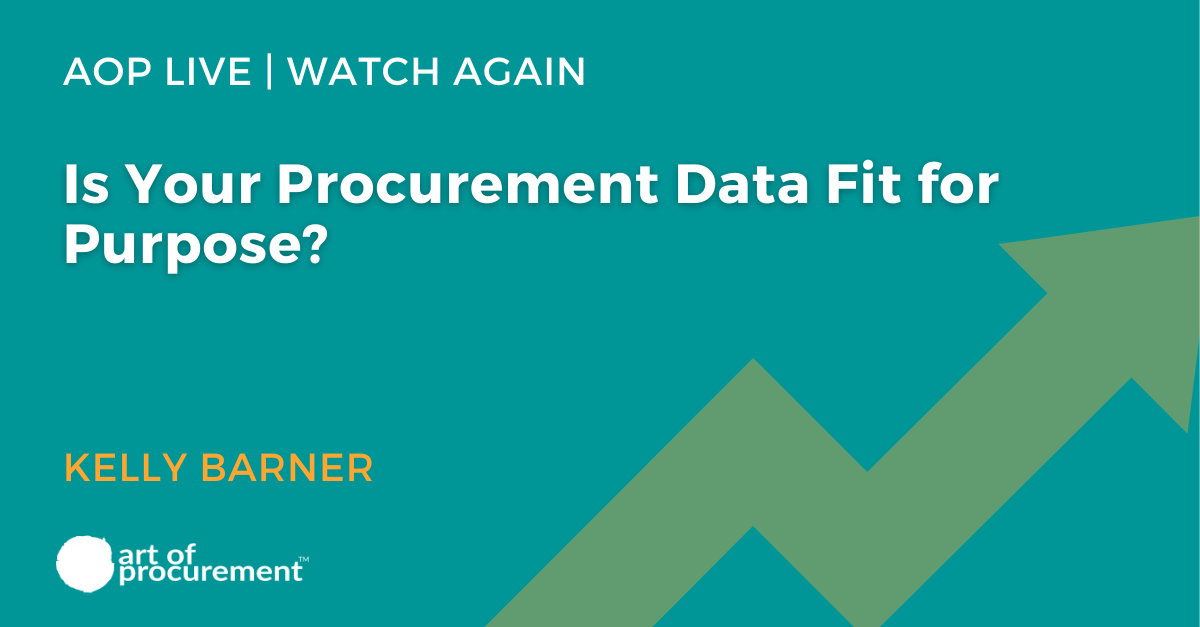
Every year, the International Association for Data Quality Governance and Analytics (or IADQGA) runs their Data Quality and Governance study. The 2021 report marked the fifth time they have completed this study and released the results.
Joe Yacura, the Founder IADQGA, and Vishal Patel, VP of Product Marketing at Ivalua, recently joined us for an AOP Live session to discuss the findings of the study. Among the most valuable topics we addressed was a deceptively complex question: what is quality data?
Here is what we learned from Joe Yacura:
There are so many ways to think about data and data attributes: completeness, relevance, accuracy, timeliness, and lineage. But we can take a simpler approach to data quality – one that puts the information in context.
“The simplest definition of quality,” Joe Yacura said, “is whether or not the data meets your requirements.” Of course, this means different things in different settings and for different use cases.
- Pharmaceutical makers want to have a high frequency of ingredient sampling and accurate measurements for all of the medications they are developing or producing.
- A commercial bakery wants to keep their recipe the same, but if they vary a few grams here and there, and sample for quality every hour, the impact of those variations will be minimal on the output.
Supply chains are in a battle for data supremacy. Whatever suppliers and customers can communicate at the desired level of detail will either allow them to manage their operations and win in the marketplace or not.
As we move from using data to report historical information to supporting forecasting, the degree of data required increases dramatically, as does the need for refreshes. People can sometimes recognize when data is up to date enough for one purpose but not another, but that is often the limit of their perception. Data literacy is improving, but it is still immature and informal. Despite how critically important data is, most of us have not been formally trained to use it.
This lack of training can be seen in common sourcing activities. For instance, Joe pointed out that only about half of the survey respondents include their data requirements when sending out an RFP.
Only after the contract has been signed does procurement start raising relevant questions around data. In many cases, the supplier is either not willing to provide that data, is not capable of providing that level of data, or is not capable of providing that data at that frequency level or in those units of measure.
We are at a critical pivot point in terms of how we use data, and the focus has dramatically increased over the last three to five years.
To hear the rest of the conversation with Joe Yacura and Vishal Patel, click here.




